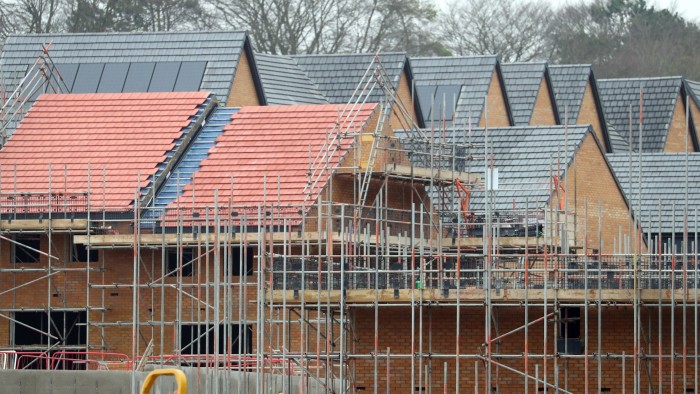Unlock the Editor’s Digest for free
Roula Khalaf, Editor of the FT, selects her favourite stories in this weekly newsletter.
Councils in England are set to lose their power to obstruct large-scale housing projects as the government tries to boost building, in a move that has already been criticised as anti-democratic by town halls.
Steve Reed, housing and communities secretary, will announce this week that local authorities will be prevented from refusing planning permission for housing schemes with more than 150 homes — and instead will have to refer the decision upwards to national ministers.
Reed claimed last month that about 900 housing schemes had been blocked by councillors in the past year.
He will issue a legally binding instruction to councils to tell him about any development of more than 150 homes that the authority plans to block. These projects would then be “called in”, with an independent planning inspector examining the scheme before the secretary of state makes a final decision.
Under existing rules, councils only need to tell the housing secretary when they intend to approve certain projects, giving the minister a chance to try to overturn the scheme. Reed wants to “flip those arrangements on their head”, according to allies.
The plans, confirmed by government officials, were first reported by The Times newspaper on Monday.
The Home Builders Federation, which represents many housebuilders, said the change in rules would accelerate development. “It will help ensure more larger sites come forward and prevent unnecessary delays to sites appropriate for development,” it said. “If the government can [also] reduce taxes on housebuilding and regulatory costs so more sites are viable, and ensure more people are able to buy, the move could help drive housing supply.”
But the Local Government Association said the plans would undermine local democracy and pointed out that authorities already approved nine out of 10 planning applications.
“Councils are central to addressing the housebuilding crisis across the country and are ready to play their part,” it said. “Councils know their communities best and should remain at the heart of the planning process. The democratic role of councillors in decision-making is the backbone of the English planning system, and this should not be diminished.”
Andrew Husband, Reform UK leader of Durham county council, said: “This makes a mockery of planning committees. On the one hand they say ‘devolution’ and more powers to local government, then the real Labour party shows its face.”
The government has already set out other policies that could sideline councillors on some planning issues. For example unelected planning officers will be responsible for smaller developments, instead of committees of elected councillors, under a proposed “scheme of delegation”.
The Labour government has set out an ambitious target of building 1.5mn new homes during this parliament, but delivery has failed to pick up since the general election last year. The number of new homes given planning permission in England in the first three months of this year was the lowest figure for 13 years.
Reed will also introduce further changes to the National Planning Policy Framework — the documents that guide councils on planning decisions — later this year.
Ministers are hoping to soon win royal assent for a planning and infrastructure bill aimed at helping to accelerate building activity.
The bill is designed to cut planning permission times for large infrastructure schemes, curtailing protesters’ ability to launch multiple judicial reviews and allowing developers to pay into a new “nature restoration fund” to avoid ecological delays to projects.




